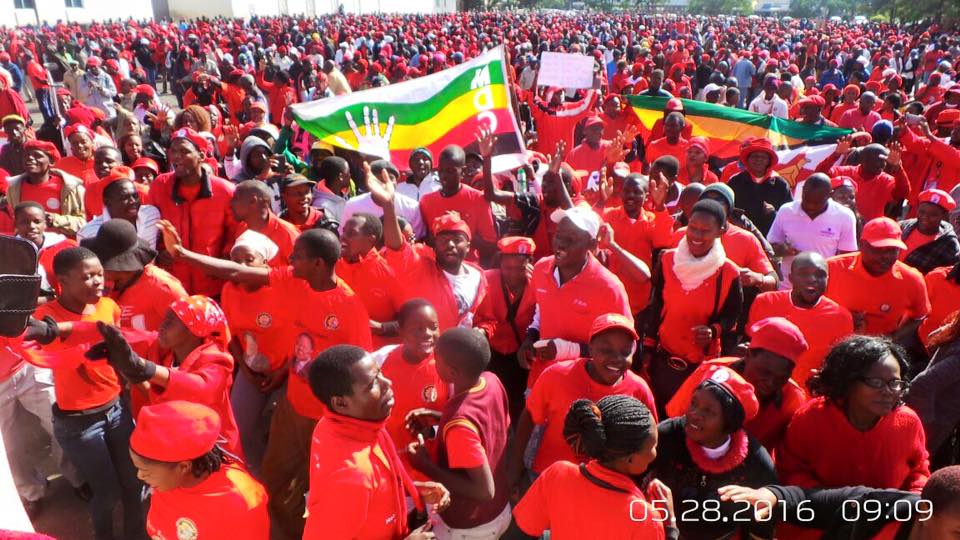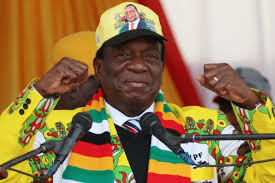
MDC-T leader Morgan Tsvangirai has put forward three proposals which opposition parties can use to select the leader of a coalition to take on President Robert Mugabe in next year’s elections.
BY OBEY MANAYITI/EVERSON MUSHAVA
Tsvangirai’s proposals which are likely to see a breakthrough in the coalition talks were outlined at last week’s meeting of the Zimbabwe National Electoral Reform Agenda (Zinera) which was attended by principals, among them Joice Mujuru of National People’s Party.
Transform Zimbabwe leader Jacob Ngarivhume, who heads the youth committee, said Tsvangirai’s first proposal was that opposition parties agree on a coalition leader and fight for positions at other levels.
He said the MDC-T leader also proposed that the parties choose a coalition leader through a method to be agreed and proceed to elections if there was a deadlock.
“Tsvangirai also gave an option of contesting across all positions, but it’s not a viable option because contestations will kill the chances of working together,” Ngarivhume said.
“He proposed that parliamentary representatives should be selected equitably.
“Parties will decide who will be more popular in each constituency. A formula of distribution of seats has not, however, been agreed on. Parties will have to agree.”
- Chamisa under fire over US$120K donation
- Mavhunga puts DeMbare into Chibuku quarterfinals
- Pension funds bet on Cabora Bassa oilfields
- Councils defy govt fire tender directive
Keep Reading
More than 20 parties under Zinera met in Harare last Thursday to work on a roadmap on how to form a new all-inclusive grand coalition ahead of next year’s harmonised elections.
Tsvangirai leads the diplomatic committee, Mujuru (political), Zapu leader Dumiso Dabengwa (strategy) Marceline Chikasha (women) and People Democratic Party leader Tendai Biti (legal).
There are more than two distinct groups pursuing different coalitions, the one being built by Tsvangirai, MDC led by Welshman Ncube and Mujuru together with other parties, and another coalition pact sealed last year under Code and another one that is being facilitated in South Africa.
According to Ngarivhume, the parties will meet this week to deliberate on electoral reforms.
They will then next week deliberate on the presentations made by Tsvangirai and other opposition leaders on the issue of the coalition.
He said the parties had agreed to iron out the sticky issue of who will lead the coalition by end of this month, while modalities of working as a coalition will be outlined by end of July.
The parties have set end of August as the date the coalition would collectively be on the ground to campaign for the 2018 general elections.
However, The Standard gathered that several divergent views were raised during the meeting, with accusations and counter accusations of lack of seriousness.
In his presentation, according to sources, Tsvangirai justified his exclusionary move when he picked only two other parties, including two others he is still discussing with, saying the majority had failed to prove that they were institutions or individuals.
This drew the ire of other political parties who felt hard done by the exclusion as they hit back at the former premier whom they described as desperate to impose himself on them.
“We told him that the negotiations being facilitated in South Africa have exposed him and we are getting more political currency against him.
“Tsvangirai is making a last effort to reach out to all of us but we are firmly in control and we are giving out our own conditions.
“However, we are happy that this is a breakthrough moment for Zimbabwe and despite our differences, there is a general feeling that unity is the only way forward,” said one leader who requested anonymity.
But Ngarivhume supported Tsvangirai, saying there was need for a thorough vetting so that only political institutions and not individuals were part of the coalition.
According to a document presented as the guideline to the coalition, negotiations must be concluded by end of August.
The principals called for serious vetting of the parties to avoid Zanu PF infiltration and also said only two representatives per party must be allowed in the negotiations.
They also proposed to self-facilitate, unless they all unanimously agree on a facilitator.
“An initial three-day meeting should be held to try and discuss as many of the issues as possible. This meeting will determine the frequency of subsequent meetings,” reads the document.
“The overall objective is to ensure that a meeting is held at least once a fortnight and that the overall negotiations should be done within three months, that is by end of August 2017.
“The venue should be private and avoid disruption by police.
“The process will assume equality of parties on the negotiating table. Decisions will be by consensus.
“Parties disagreeing on a position should be allowed to present alternative models. Subcommittees including agreed external parties can be set to look at the different points of view with the aim of narrowing down the differences.
“If a compromise cannot be reached, then a poll by secret ballot can be conducted and be managed by the proponents of the different areas. A decision will require 75% of the parties to pass. Each party to have one vote.”
According to the proposal, each party should have a minimum of three National Assembly candidates and the agreement on the government structure on whether to have a prime minister or not or on the number of vice-presidents.
There is also a proposal to introduce a supreme council that will guard against excessive powers that a president enjoys under the Constitution.
The council can be staffed by senior political and church leaders or other respectable individuals who would have distinguished themselves in different aspects.










